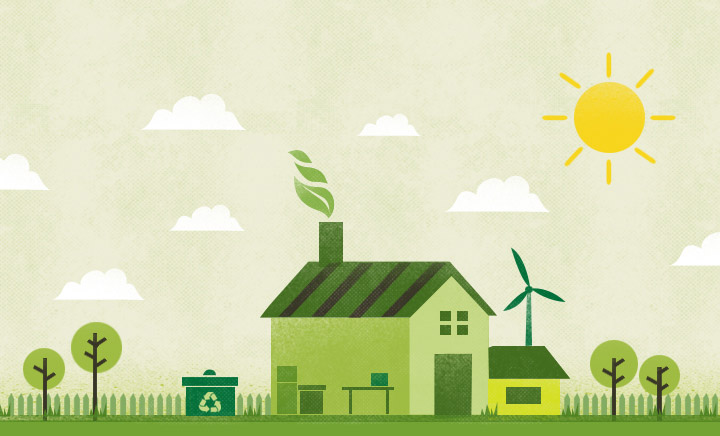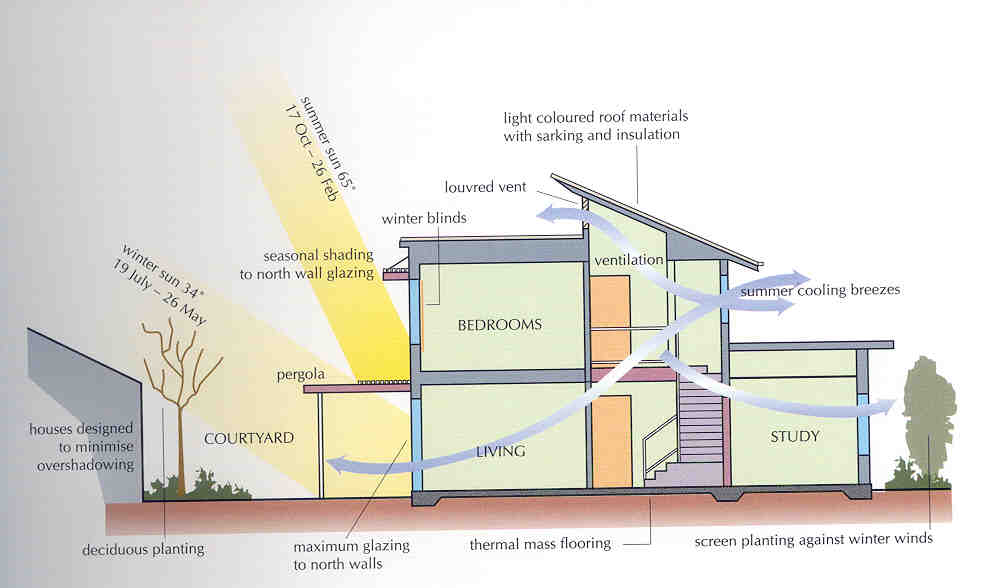
Discover 9 easy and practical ways to embrace sustainable living through composting and organic gardening.
This informative article provides valuable tips and techniques for eco-friendly practices, waste reduction, and conservation.
Learn the basics of composting and organic gardening, and explore minimalist living ideas, energy-efficient strategies, and the utilization of renewable resources.
By taking these steps, you can actively contribute to a more sustainable future while enjoying the freedom of living in harmony with the environment.
Eco-Friendly Practices
One essential aspect of sustainable living is the adoption of eco-friendly practices, which can be achieved through simple yet impactful choices.
Two key areas where individuals can make a significant difference are conserving water and reducing carbon emissions.
Conserving water is crucial to sustainable living as it helps to preserve this precious resource and reduce strain on freshwater ecosystems. Simple steps such as fixing leaky faucets, using water-efficient appliances, and practicing shorter showers can all contribute to water conservation.

Additionally, reducing carbon emissions is essential for combating climate change. This can be done by using public transportation, carpooling, or biking instead of driving, as well as opting for energy-efficient appliances and renewable energy sources.
Conservation Tips
To effectively conserve resources and reduce waste, it is important to implement practical conservation tips in everyday life. By adopting these tips, individuals can contribute to the preservation of the environment and protect wildlife for future generations. Here are three simple yet impactful conservation tips:
- Conservation Education: Stay informed about the importance of conservation and wildlife preservation. Attend workshops, seminars, or webinars that focus on environmental issues. Educate yourself about the impact of human activities on the ecosystem and explore ways to minimize harm.
- Reduce, Reuse, Recycle: Practice the three R's in your daily life. Opt for reusable items instead of single-use products. Recycle materials such as paper, plastic, and glass to minimize waste and conserve natural resources.
- Support Sustainable Practices: Choose products that are ethically sourced and produced using sustainable methods. Look for certifications such as Fair Trade or Forest Stewardship Council (FSC) to ensure that your purchases align with your conservation values.
Waste Reduction Techniques
Implementing effective waste reduction techniques is crucial for embracing sustainable living with composting and organic gardening. Waste management plays a significant role in minimizing our environmental impact and conserving resources.
One of the most practical ways to reduce waste is through recycling techniques. Separating recyclable materials such as paper, plastic, glass, and metal from the general waste stream can help divert them from landfills and promote their reuse. Many communities have recycling programs in place, making it convenient for individuals to participate.
Additionally, reducing waste also involves avoiding single-use items and opting for reusable alternatives. This could include using cloth shopping bags, reusable water bottles, and cloth napkins instead of disposable options.
Composting Basics
Composting is a simple and effective way to reduce waste and nourish your garden. By composting, you can divert organic materials from the landfill and create nutrient-rich soil for your plants.
In this section, we will explore the benefits of composting, different composting methods, and how to troubleshoot common issues that may arise during the process.

Benefits of Composting
One of the key advantages of composting is that it helps reduce waste and supports environmental sustainability. Composting has a positive environmental impact by diverting organic waste from landfills, where it would release harmful greenhouse gases. Instead, this waste can be transformed into nutrient-rich compost that can be used to enhance soil fertility.
Here are three main benefits of composting:
- Reduces landfill waste: Composting allows organic materials such as food scraps, yard waste, and paper products to decompose naturally, reducing the volume of waste that ends up in landfills.
- Improves soil fertility: Compost enriches the soil with essential nutrients, improves moisture retention, and encourages the growth of beneficial microorganisms. This leads to healthier plants and increased crop yields.
- Reduces the need for chemical fertilizers: By using compost instead of synthetic fertilizers, you can avoid introducing harmful chemicals into the environment and promote a more sustainable approach to gardening and farming.
Composting Methods Explained
There are several methods available for effectively composting organic materials.
One popular method is backyard composting, which involves creating a compost pile or using a compost bin. This method requires minimal composting equipment, such as a pitchfork or shovel, to turn the compost pile regularly and promote proper aeration.
Another method is vermicomposting, which utilizes worms to break down organic waste into nutrient-rich compost. Vermicomposting can be done indoors using a worm bin, making it a great option for those with limited outdoor space.
Lastly, there is the option of using compost tumblers or compost aerators, which provide a convenient way to turn and aerate the compost without the need for manual labor.
Whichever method you choose, the key to successful composting is maintaining the right balance of green (nitrogen-rich) and brown (carbon-rich) materials, along with regular turning and moisture management.

Troubleshooting Common Composting Issues
To effectively address common issues that may arise during the composting process, it is important to identify and troubleshoot potential challenges. Compost troubleshooting can help maintain a healthy and productive compost pile.
Here are some common composting issues and how to troubleshoot them:
- Odor: If your compost pile has a foul smell, it may be due to an imbalance of carbon and nitrogen. Add more carbon-rich materials like dry leaves or straw to help neutralize the odor.
- Pests: If you notice pests in your compost pile, such as flies or rodents, it may be a sign that the pile is too wet or contains food scraps that are attracting them. To mitigate this issue, add more dry materials and avoid adding meat or dairy products.
- Slow decomposition: If your compost is taking longer to decompose, it may be lacking moisture or oxygen. Turn the pile regularly to introduce air and add water if it feels dry.
Organic Gardening Tips
Implementing effective organic gardening practices is essential for maintaining a sustainable and eco-friendly garden. One key aspect of organic gardening is organic pest control. Instead of relying on chemical pesticides, which can harm beneficial insects and contaminate the environment, organic gardeners use natural methods to control pests. These methods include attracting beneficial insects like ladybugs and lacewings, using physical barriers like row covers, and practicing crop rotation to disrupt pest life cycles.
Another important aspect of organic gardening is soil amendments. Organic gardeners enrich their soil with compost, which improves soil structure, provides essential nutrients, and enhances soil fertility. They also use natural fertilizers like bone meal, seaweed extract, and compost tea to nourish their plants.
Minimalist Living Ideas
When it comes to embracing minimalist living, decluttering is key. By getting rid of unnecessary belongings and creating a more streamlined living space, you can reduce stress and improve your overall well-being.
Simplifying daily routines and adopting mindful consumption habits are also important aspects of minimalist living, allowing you to focus on what truly matters and live a more intentional and sustainable lifestyle.
Decluttering for Minimalist Living
One effective approach to achieving minimalist living is through the deliberate process of decluttering and organizing one's belongings. By simplifying our living spaces and letting go of unnecessary possessions, we can create a sense of freedom and peace in our lives.

Here are some practical ideas to help you declutter for minimalist living:
- Start small: Begin by decluttering one area at a time, such as a closet or a drawer. This will prevent overwhelm and make the process more manageable.
- Embrace minimalist decor: Choose furniture and accessories that serve a purpose and bring joy to your space. Opt for clean lines, neutral colors, and simple designs to create a calm and clutter-free environment.
- Sustainable fashion: Declutter your wardrobe by donating or selling clothes that no longer fit or bring you joy. Invest in timeless, high-quality pieces that can be mixed and matched, reducing the need for excessive shopping.
Simplifying Daily Routines
To simplify daily routines and embrace minimalist living, it is important to streamline our activities and prioritize tasks that align with our values and goals.
Simplifying routines allows us to focus on what truly matters and eliminates unnecessary stress and clutter.
One key aspect of simplifying daily routines is effective time management. By identifying our priorities and setting clear goals, we can allocate our time and energy accordingly. This involves eliminating time-wasting activities and creating efficient systems.
For example, batching similar tasks together can save time and mental energy. Additionally, establishing a daily routine can provide structure and minimize decision fatigue.
Mindful Consumption Habits
Practicing mindful consumption habits is essential for embracing minimalist living and can be achieved through intentional choices and conscious decision-making. By adopting mindful shopping practices, individuals can make a positive impact on the environment and support sustainable fashion. Here are three key ways to incorporate mindful consumption habits:
- Prioritize quality over quantity: Instead of buying cheap and disposable items, invest in high-quality pieces that are made to last. This reduces waste and encourages a more sustainable approach to fashion.
- Choose ethically-made products: Look for brands that prioritize fair trade, ethical sourcing, and environmentally-friendly production methods. This ensures that your purchases align with your values and contribute to a more sustainable fashion industry.
- Embrace a minimalist wardrobe: Streamline your closet by focusing on versatile, timeless pieces that can be mixed and matched. This reduces the need for constant shopping and helps to minimize clutter and waste.
Energy-Efficient Strategies
The implementation of energy-efficient strategies is crucial for embracing sustainable living with composting and organic gardening. By adopting energy-saving appliances and sustainable transportation methods, individuals can significantly reduce their carbon footprint and contribute to a greener future.

One of the most effective ways to achieve energy efficiency in the household is by investing in energy-saving appliances. These appliances are designed to consume less energy while still delivering optimal performance. By using appliances with high energy efficiency ratings, such as ENERGY STAR certified products, individuals can reduce their energy consumption and lower their utility bills.
In addition to using energy-efficient appliances, adopting sustainable transportation methods is another important aspect of energy conservation. Opting for public transportation, carpooling, biking, or walking instead of relying solely on private vehicles can significantly reduce greenhouse gas emissions and reliance on fossil fuels. By incorporating sustainable transportation methods into daily routines, individuals can make a positive impact on the environment while also improving their overall health and well-being.
Utilizing Renewable Resources
By harnessing renewable resources, individuals can further enhance their sustainable living practices with composting and organic gardening. Utilizing renewable resources not only reduces our carbon footprint but also promotes sustainable agriculture and supports the use of renewable energy.
Here are three ways to incorporate renewable resources into your composting and organic gardening practices:
- Install solar panels: By using solar energy to power your composting system and gardening tools, you can reduce your reliance on non-renewable energy sources and decrease your environmental impact.
- Use rainwater harvesting: Collecting rainwater in barrels or tanks allows you to water your garden without tapping into municipal water supplies. This conserves water resources and reduces the strain on local ecosystems.
- Utilize organic waste: Instead of throwing away organic waste, such as food scraps and yard trimmings, use them to create nutrient-rich compost. This not only reduces landfill waste but also provides natural fertilizer for your plants.
Incorporating these practices into your sustainable living routine will not only benefit the environment but also contribute to a healthier and more self-sufficient lifestyle.
Taking Environmental Responsibility
How can individuals demonstrate environmental responsibility through composting and organic gardening?
By practicing composting and organic gardening, individuals can actively contribute to environmental awareness and sustainable practices.

Composting allows the recycling of organic waste, such as food scraps and yard trimmings, into nutrient-rich compost that can enrich the soil and reduce the need for chemical fertilizers. This not only reduces waste going to landfills but also helps to create healthier soil and promote biodiversity.
Organic gardening, on the other hand, involves growing plants without the use of synthetic chemicals, pesticides, or genetically modified organisms. By choosing organic gardening methods, individuals can protect the environment, support pollinators, and ultimately produce healthier, more sustainable food.
Taking these steps not only benefits the planet but also empowers individuals to take charge of their own environmental impact.
Frequently Asked Questions
How Can I Make Composting a Part of My Everyday Routine?
Incorporating composting into your everyday routine can be simple and beneficial. By following composting tips and understanding the benefits, you can easily create a sustainable lifestyle that contributes to a healthier environment.
What Are Some Common Mistakes to Avoid When Starting an Organic Garden?
When starting an organic garden, it is important to be aware of common mistakes that can hinder success. By avoiding these mistakes and following some tips for success, you can ensure a thriving and sustainable garden.
Are There Any Alternative Waste Reduction Techniques Besides Composting?
Alternative waste reduction techniques can be implemented alongside composting to further embrace sustainable living. Recycling methods, such as reducing waste through proper sorting and utilizing recycling programs, can significantly contribute to waste reduction and environmental conservation efforts.
How Can I Incorporate Renewable Resources Into My Daily Life?
Incorporating renewable energy sources and utilizing eco-friendly transportation options are effective ways to embrace sustainability in daily life. These practices not only reduce reliance on non-renewable resources but also contribute to a cleaner and greener environment.

Are There Any Government Initiatives or Programs That Support Sustainable Living Practices?
Government initiatives and funding programs exist to support sustainable living practices. These initiatives aim to encourage individuals to adopt environmentally friendly habits and provide financial assistance for projects such as composting and organic gardening.